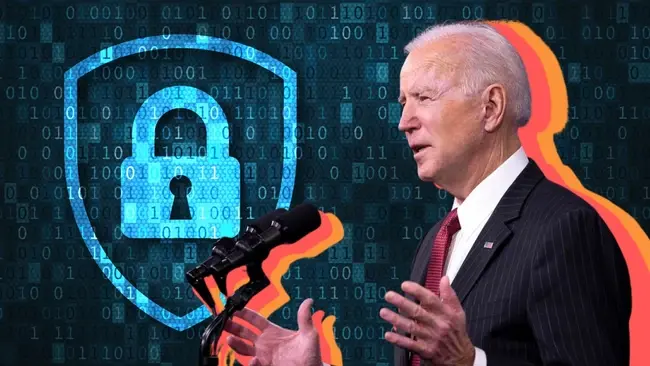In his second State of the Union address, US President Joe Biden put the spotlight on data privacy and emphasised the need for stricter data protection laws to protect US citizens.
The president, poised to launch his re-election campaign, said that data privacy legislation could garner bipartisan support with the political control of US congress now split.
“We must finally hold social media companies accountable for experimenting they’re doing [on] children for profit,” Biden explained during his speech, gaining a standing ovation from both sides of the political spectrum.
“To my Republican friends, if we could work together in the last Congress, there is no reason we can’t work together and find consensus on important things in this Congress as well,” he said.

Biden's remarks went further – calling for a shift in public understanding of the need for improving data privacy in the country.
“It’s time to pass bipartisan legislation to stop Big Tech from collecting personal data on our kids and teenagers online. Ban targeted advertising to children and impose stricter limits on the personal data that companies collect on all of us,” the president said.
The Kids Online Safety Act
The remarks echo similar messages from Biden’s first State of the Union address in 2022 when the president highlighted the need to protect children and young adults from data collection.
“It’s time to strengthen privacy protections, ban targeted advertising to children, demand tech companies stop collecting personal data on our children,” he said.
The president also highlighted the mental health impacts of social media on children, referencing Frances Haugen’s massive Meta document leaks which demonstrated Instagram’s damaging effects on teenage girls’ mental health.
The leaks, which sparked a series of five Senate hearings on children’s online safety, resulted in Senator Richard Blumenthal and Senator Marsha Blackburn introducing the Kids Online Safety ACT (KOSA), which matches Biden’s policy suggestions.
My bipartisan Kids Online Safety Act provides children and parents with tools, safeguards, and transparency to protect against online threats to kids’ health and well-being.
— Sen. Marsha Blackburn (@MarshaBlackburn) December 14, 2022
It’s critical we get this done.
The bill would require social media firms to provide users under the age of 16 with the option to prevent their information from being collected, disable addictive product features and remove algorithmic recommendations found on applications like TikTok.
To read more about data privacy, visit our dedicated Data Management Page.
Experts believe that of all potential online safety legislation proposed by lawmakers over the past few years, KOSA is the most likely the gain political steam in 2023.
In July last year, Blumenthal and Blackburn pushed for KOSA to be passed as part of a $1.7 trillion effort, but did not succeed.
But growing support for the bill on both sides of the political spectrum could see the bill passed very soon. If so, it would represent the first actions taken by the US government to protect data privacy, potentially marking the beginning of a new era of data privacy legislation.
The legislative drought
Biden is one of few presidents to mention data privacy in the State of the Union address. Donald Trump never mentioned the annual topic in any of his annual addresses.
Barack Obama did briefly mention the topic in his 2013 address after the discovery of the undisclosed scale and scope of the National Security Agency’s surveillance programs, but never mentioned it in any speeches that followed or take responsive action.
Biden’s speech, on the other hand, stands in stark contrast to the US government’s long-standing distant stance on data protection legislation within the country.
The US government has demonstrated its interest in data regulations that limit the tech sector’s ability to collect data but has historically failed to take definitive action.
And when it does enforce regulations against companies to protect data, the process of which government does so involves long periods of documentation, deposition taking and political bickering.
The Department of Justice, for instance, spent years investigating whether Google is abusing its dominance of ad technology to obliterate competitors, but is still yet to make a final decision.
Once it makes a decision, the case could take several years to move through the courts. In the meantime, the ad technology under investigation will likely become obsolete, and the would-be rivals will have already left the market.

This year's ITEXPO theme is CONNECT-SELECT-PROTECT. Come meet with the right people, choose the right technology options for your needs, and always keep an eye on protecting your assets with best-in-class cybersecurity tools.
Since its launch in 1999, ITEXPO is the one event that brings communications and technology professionals together across the entire eco-system:
- Enterprise and SMB telecom and IT professionals
- MSP and Channel C-levels and business owners
- Service providers/carriers
- Industry suppliers and solutions providers




Comments ( 1 )
Stacey Barker
10/02/2023